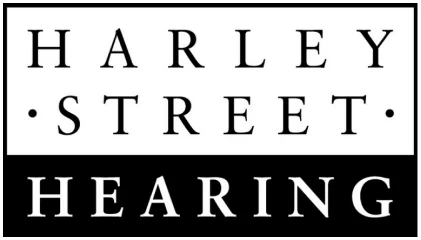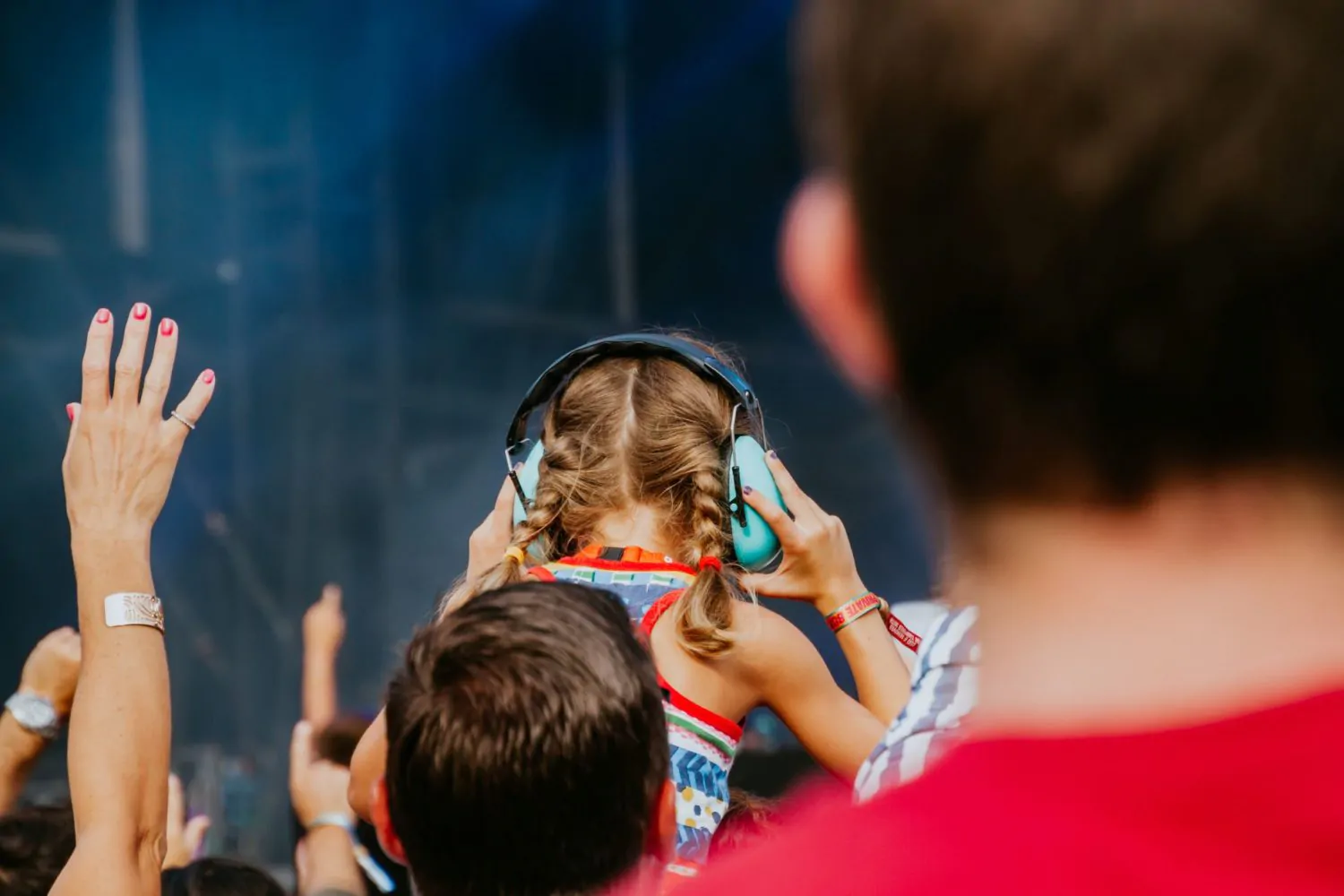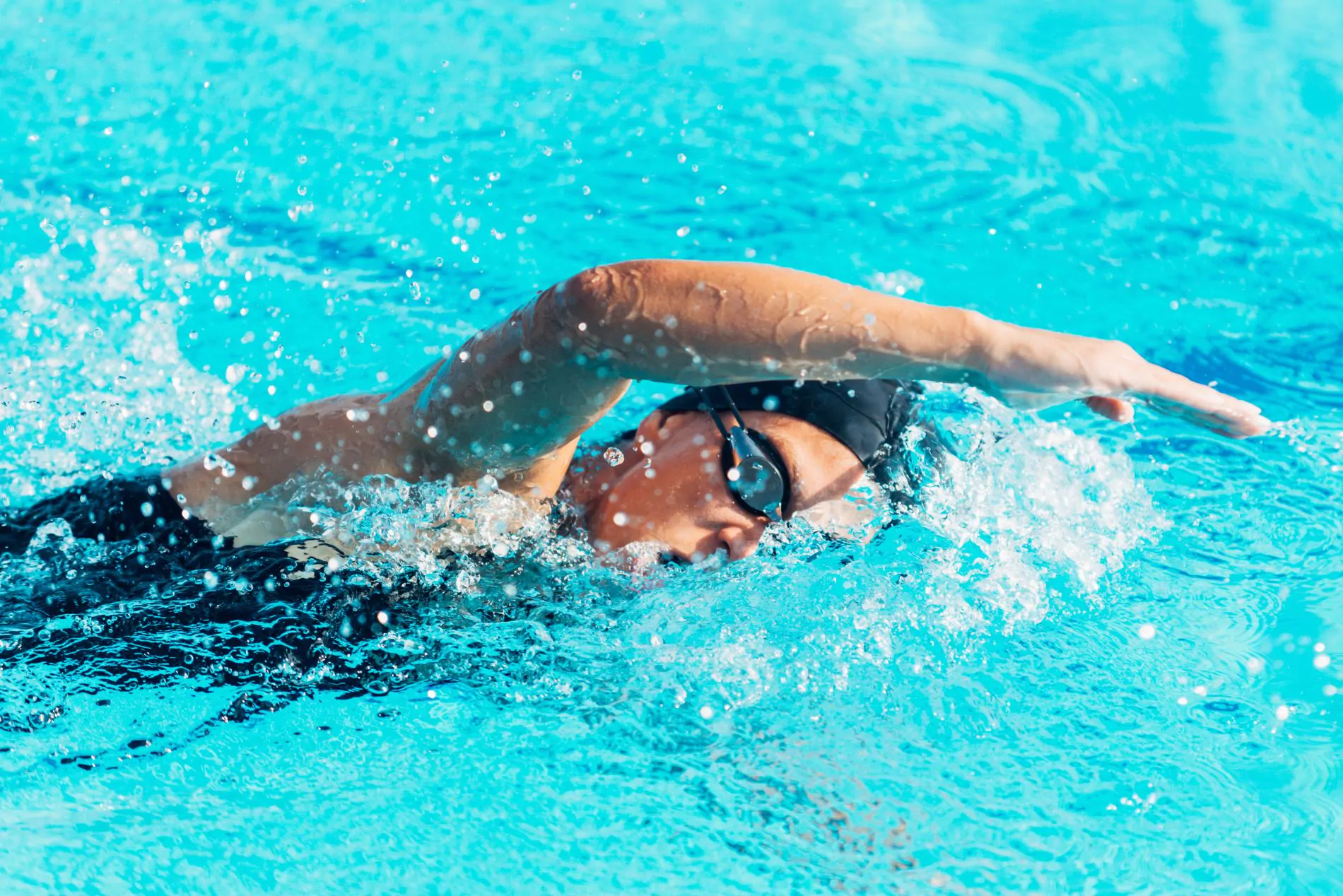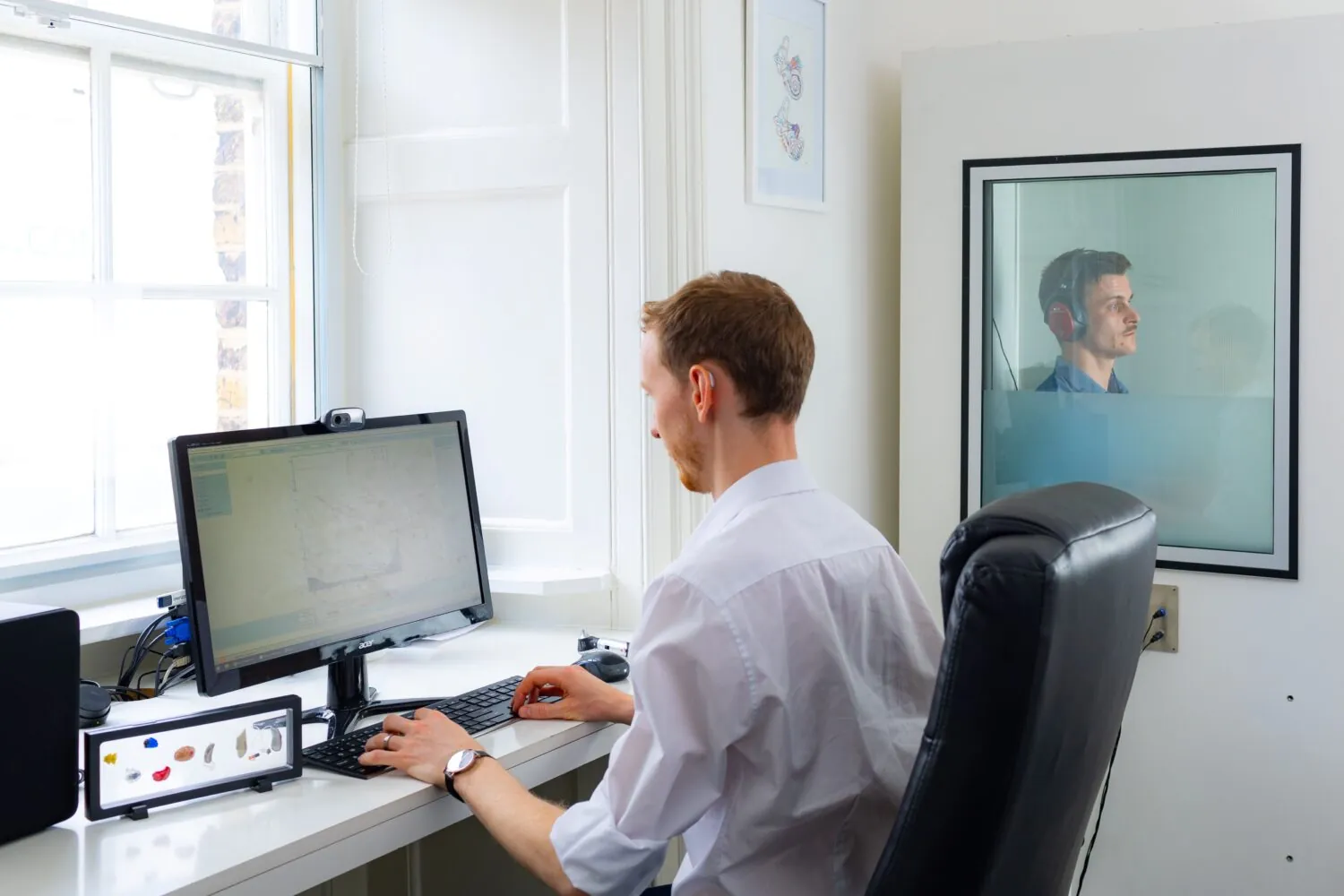Summer is well and truly here in the UK, and with that comes plenty of outdoor fun including festivals, family holidays, BBQs, garden parties and long days spent out in the sunshine.
Most of us are well equipped to protect our skin at this time of year but when it comes to our ears, we’re often less prepared. Unlike sunburn, hearing damage isn’t always obvious straight away but it can be permanent.
Thankfully, a few simple steps can go a long way in keeping your hearing safe, and we’ll dive into each one of those in this blog.
1. Protect your ears at gigs and festivals
We all love live music at this time of year – whether it’s a headline festival in a muddy field, a local outdoor gig or evening entertainment at the local pub. All these events may seem very different on the surface, but they can all damage your hearing in a very similar way.
Of course, at these types of events the speakers are usually cranked up well above the levels we deem as safe. Sounds above 85 decibels can start to cause damage if you’re exposed to them for too long. At live music events and festivals, it’s not uncommon for sound levels to sit at over 100 decibels – this is enough to cause hearing damage in just 15 minutes.
It’s important to point out that ringing in your ears after a gig isn’t normal – it’s a sign of potential damage!
Now, this might be something that you feel you have little control over as you can’t exactly turn the volume down but there are steps you can take to mitigate the risks to your ears.
- Use hearing protection – we recently compiled a list of the best earplugs for festivals which we would recommend checking out. These help to reduce the volume without muffling the quality of the music so you can listen at a safer level.
- Take regular breaks – make a conscious effort to step away from the speakers and give your ears some well-needed recovery time.
- Don’t stand right at the front – it’s tempting to get the best view but the closer you are to the stage, the more intense the sound pressure. Try to stand as far away from the speakers as you can (whilst still being able to hear the music) to protect your ears!
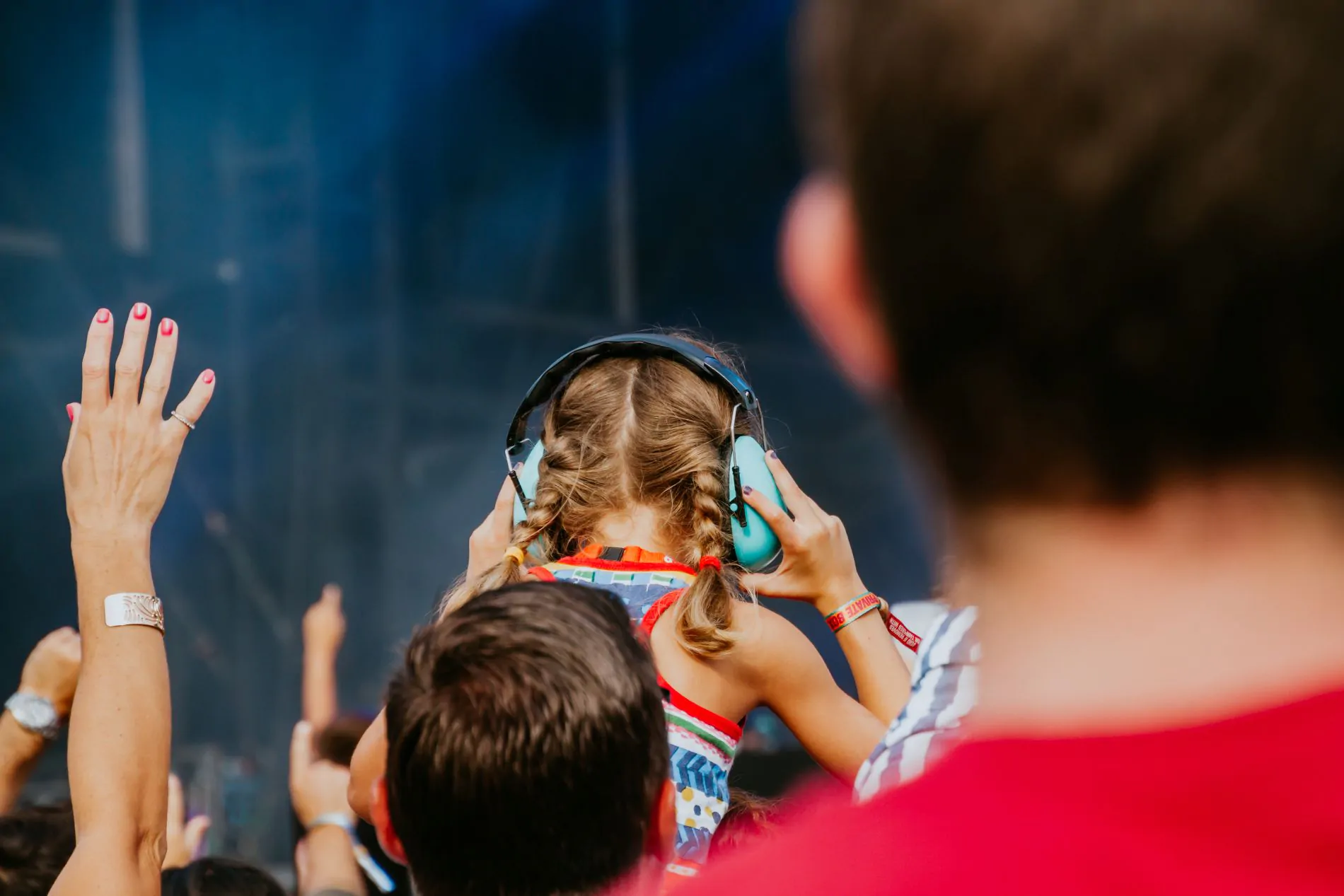
2. Practice safe headphone listening
More of us are wearing headphones on a regular basis, whether it’s to listen to a podcast whilst out walking or listening to music whilst out on a run. However, not many people are aware of the dangers that wearing headphones can pose to our hearing. Headphones, earphones, any type of personal listening device can easily expose your ears to harmful volumes especially if you’re cranking the volume up to drown out background noise.
Listening at high volumes for extended periods can slowly wear away at your hearing and the damage is often permanent. If you’re a gamer, this is true for you too and we’ve covered all the risks in this recent article about gaming and tinnitus.
So, what can you do to help practice safe headphone listening? Try these helpful habits:
- Follow the 60/60 rule: Keep the volume at 60% of the maximum and limit your exposure to 60 minutes per day, ideally keeping the volume below 85 dB.
- Take regular breaks: Take a 15-20 minute break every hour to give your ears a chance to rest.
- Invest in noise-cancelling headphones: These will allow you to block out external noise, so you don’t need to increase the volume.
Our custom moulds for headphones are the perfect solution, reducing volume levels and producing a higher quality listening experience.
3. Protect your ears from water damage
If the UK weather is on our side, then summer is usually the perfect time to take a dip! Maybe you’re planning a day trip to the beach, the pool or diving into more adventurous activities like jet skiing or wakeboarding, whatever your preference just be aware that water fun can come with some hidden risks for your ears.
Water in the ears might seem harmless but it can lead to irritation or infections like swimmer’s ear, especially if it becomes trapped in the canal or if you’re swimming in untreated water.
Here are our top tips for staying safe in water:
- Dry your ears thoroughly after swimming – Use a soft towel to gently pat your ears dry and tilt your head to help drain any trapped water. Avoid using cotton buds as they can push water in deeper and irritate the ear canal.
- Use swimming plugs – These help to keep water out while still allowing you to hear your surroundings. Custom swimming plugs are the most effective due to their tailored fit and are especially important for those who are prone to infections or have had ear surgery.
- Avoid polluted water – This can introduce bacteria and increase the risk of infection.
4. Be cautious when gardening
Summer is the perfect time to keep up with (or finally start tackling) the gardening, but again this is another activity that surprisingly can have an impact on your hearing!
The use of power tools like lawnmowers, hedge trimmers, drills and pressure washers can be surprisingly loud and often exceed the safe sound limits as mentioned earlier.
The simplest way to protect against this kind of damage is to wear a pair of good quality ear defenders when operating this type of noisy machinery. And of course, remember to take regular breaks to give your ears a rest in between gardening jobs.
5. Stay safe whilst flying
Holidaying abroad this summer? If you’re hopping on a plane it’s important to be aware of just how much air travel can affect your ears. The rapid pressure changes during take-off and landing can cause discomfort, popping sensations, or even pain. For some people, it can take hours for their ears to fully unblock – or sometimes, even days!
On top of that, the constant background noise inside the cabin which can often sit around 80-85 dBs isn’t exactly soothing. On longer flights, this kind of exposure can cause fatigue and, in some cases, contribute to hearing issues over time.
Here’s how to protect your ears on a plane:
- Chew, yawn, or swallow during take-off and landing: These small movements help activate the Eustachian tubes (which balance pressure between your ears and the outside world).
- Stay hydrated: Dry cabin air on board a plane can irritate your sinuses and affect ear pressure regulation, so sipping water regularly can help to minimise some of these problems.
- Try noise-cancelling headphones: Not only can they reduce the sound of the engine noise, but they can also make long flights more relaxing – just remember to keep the volume at a safe level if you’re watching films or listening to music.
6. Get your hearing tested
Getting your hearing tested regularly is incredibly important for children and adults of all ages, especially those who are often exposed to loud noise or have a history of ear issues.
Even if you haven’t noticed any clear signs of hearing loss, it’s still a good idea to get your hearing checked as this can also identify any underlying issues. Harley Street Hearing’s clinical audiologists provide expert hearing tests that are thorough, comfortable and informative. Hearing test appointments can be made at any of our hearing clinics across London.
If you’d like advice on custom earplugs, hearing protection for work or hobbies, we’re here to help! Get in touch with us, we’d love to hear from you.
Enjoy this article? You might be interested in some of our others:
